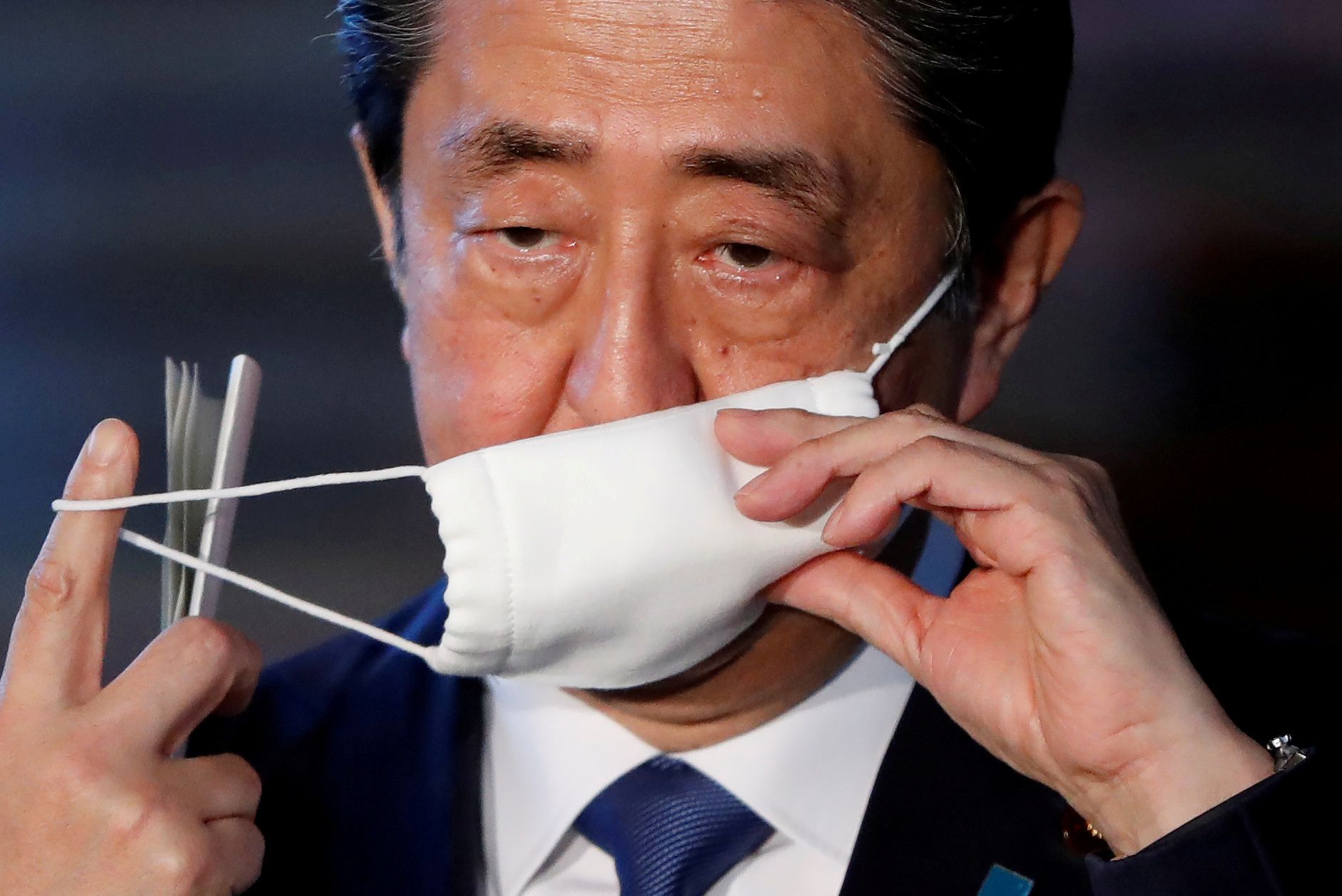Science & Tech
May 13, 2020
The prime minister vs the governor: Japan edition – Around the world, national and local leaders have been sparring over how to manage the coronavirus crisis. In Japan, long-standing political rivals, Prime Minister Shinzo Abe and Tokyo's Governor Yoriko Koike have been bickering over the national pandemic response strategy. Koike, for her part, has criticized Abe for his slow response to the outbreak, which she says cost the country precious time in curbing the virus' spread. While Abe dithered in his response to the pandemic, the governor's messaging has proved prescient, with recent reports revealing hospitals have turned away non-COVID-19 patients in need of urgent care because of a lack of beds, medical supplies, and staff, according to the Japanese Society of Emergency Medicine. A lag in testing, meanwhile, means that Japan has conducted a mere 1.8 tests per 1,000 people, making it impossible to know the real scope of the outbreak. (Consider that the US has conducted 28 tests per 1,000 people, while Germany has conducted 34 per 1,000.) Critics say that Abe's inconsistent messaging – he waited until mid April to declare a "state of emergency" that he insisted was "not a lockdown" – has not resonated with Japanese residents, an overwhelming majority of whom (some 74 percent) support a more aggressive response to the coronavirus crisis. This has also translated to the polls, where Abe's popularity has plunged in recent weeks. But Japan's next general election is not scheduled until October 2021, so the prime minister still has time to redeem himself.
China and Australia's coronavirus beef – The coronavirus crisis has exposed rifts between China and Australia, longstanding trade partners. For weeks, Australian Prime Minister Scott Morrison has called for an international investigation into the origins and handling of COVID-19. His insinuation that China has something to hide sparked a firm response from Beijing, Australia's largest trading partner, with China threatening to slap tariffs on billions of dollars worth of Australian agricultural exports. Amid the war of words, China has already suspended purchases of red meat from several Australian abattoirs, sending agriculture industry leaders into a panic as China accounts for some 20 percent of all beef produced in Australia. The Australian government, which has long enjoyed a trade surplus with China, says it doesn't want a trade war with Beijing and hopes to deescalate the situation. China, meanwhile, responded with a statement that says, "mutual respect should be the basis for the development of good relations," before threatening Australia with additional tariffs.
The EU looks to open for tourism – As the summer tourism season approaches, the European Commission is urging EU states to carefully loosen coronavirus-related travel restrictions. Tourism is big business in Europe, accounting for about 10% of the bloc's overall GDP, with many countries more dependent than that: 13 percent of Italy's economy and 14 percent of Spain's depend on tourists. Fully, a fifth of Greece's GDP and a quarter of Croatia's depend on holiday-makers. Some EU countries have already begun selectively reopening their borders. Austria, where tourists contribute to 15 percent of GDP, is looking to reopen crossings with Germany and the Czech Republic in the coming days, while Germany will relax recent controls with France, Austria, and Switzerland. The three Baltic states (Latvia, Lithuania, and Estonia) are creating a "travel bubble" of their own starting on 15 May. Looking further afield, the union's external borders are to stay shut until at least mid-June. But opening borders is one thing, changing minds is another. Even if people can travel again, how long will it take for them to do so in large numbers? Masked bargain-hunters now is your moment.
More For You
America’s new National Security Strategy confirms what Europeans have feared for months: Washington now sees a strong, unified European Union as a problem to be solved, not an ally to be supported.
Most Popular
Sponsored posts
The power of sports
What's Good Wednesdays
What’s Good Wednesdays™, December 10, 2025
Walmart sponsored posts
Walmart's $350 billion commitment to American jobs
In this episode of Tools and Weapons, Microsoft Vice Chair and President Brad Smith sits down with Ed Policy, President and CEO of the Green Bay Packers, to discuss how purpose-driven leadership and innovation are shaping the future of one of the world’s most iconic sports franchises. Ed shares how technology and community-focused initiatives, from Titletown Tech to health and safety innovations on the field, are transforming not just the game of football, but the economy and culture of Green Bay itself. He explains how combining strategic vision with investment in local startups is keeping talent in the Midwest and creating opportunities that extend far beyond Lambeau Field.
Subscribe and find new episodes monthly, wherever you listen to podcasts.
Members of security forces stand guard outside a polliong station, a week late in a special election, after the local governing party kept voting closed on election day, amid accusations of sabotage and fraud, in a presidential race still too close to call as counting continues, in San Antonio de Flores, Honduras, December 7, 2025.
REUTERS/Leonel Estrada
More than a week after Hondurans cast their ballots in a presidential election, the country is still stuck in a potentially-dangerous post-election fog.
© 2025 GZERO Media. All Rights Reserved | A Eurasia Group media company.
